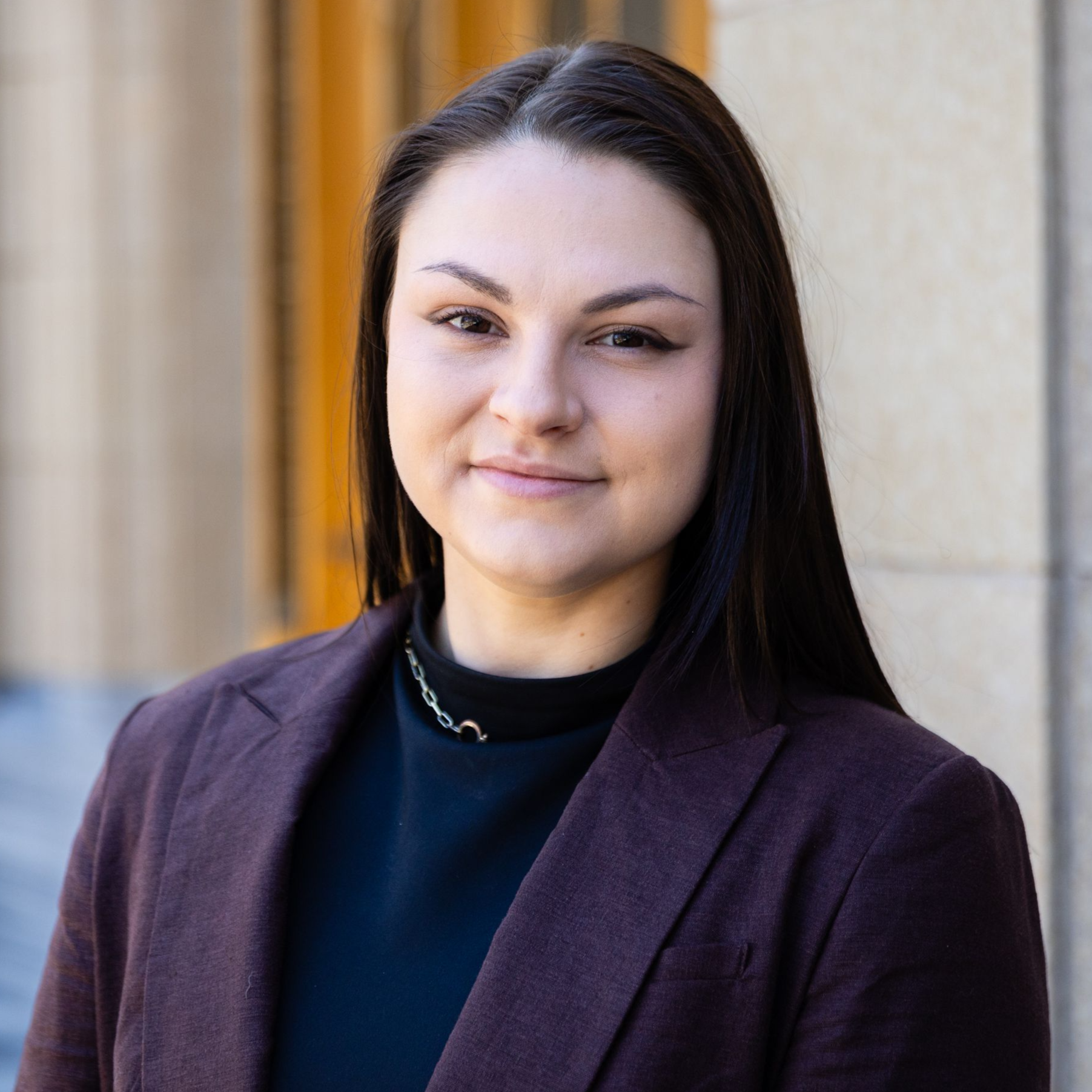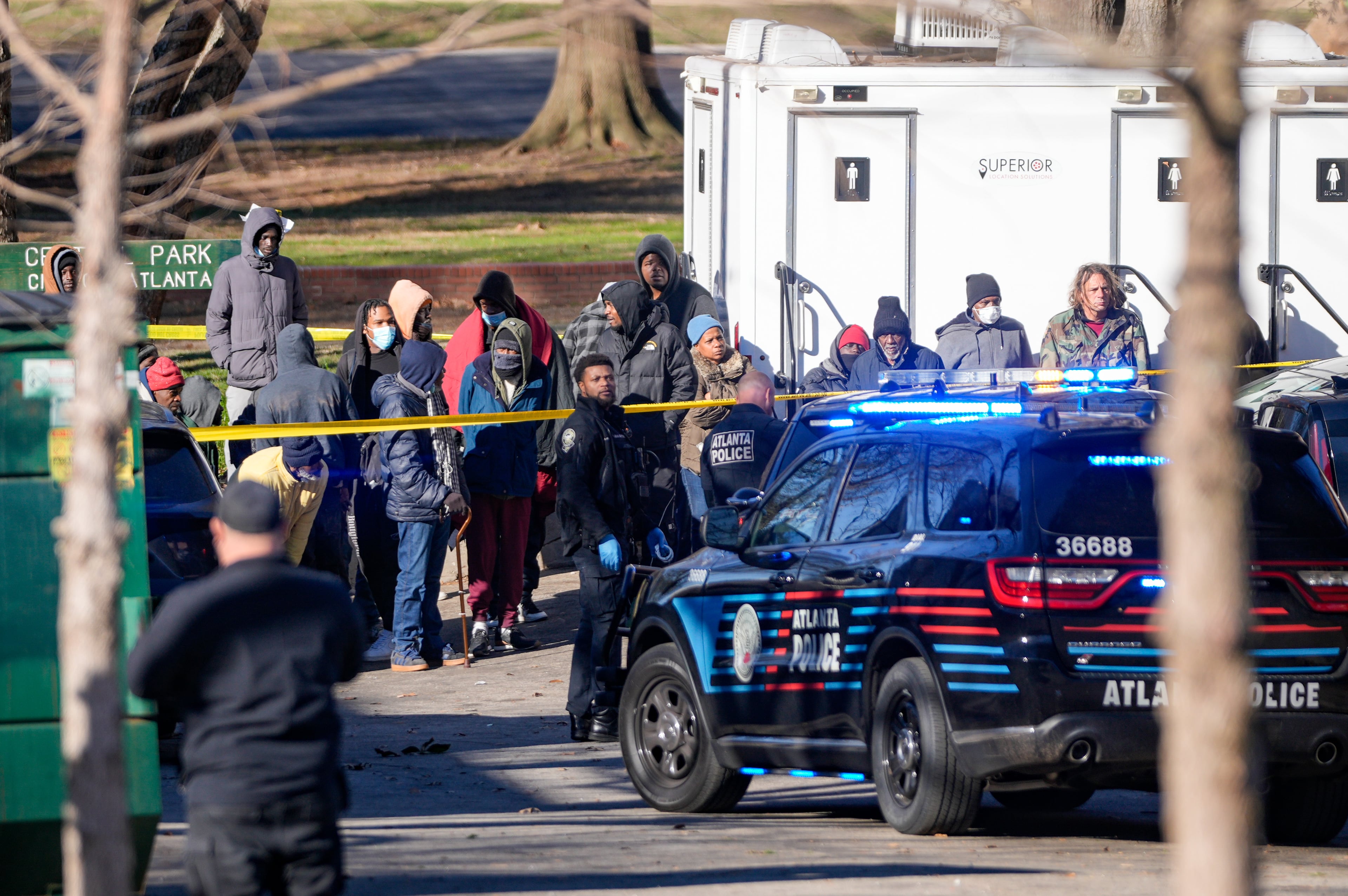Atlanta OIG is closing investigations, but findings remain undisclosed

Atlanta’s interim inspector general, in charge of rooting out government misconduct and corruption, has worked quickly to close a backlog of cases accusing city officials of wrongdoing — including several that involve allegations against officials in the mayor’s office.
But so far, all of those findings have been kept under wraps.
That’s because Interim Inspector General LaDawn Blackett, who was appointed by Mayor Andre Dickens, contends that cases aren’t officially closed and available to the public until her office presents the findings to its governing board, which currently does not exist.
As part of a legislative overhaul of the office spearheaded by the Dickens administration, the inspector general presents investigations to the board, which “shall then transmit the final decision and report to the mayor, the city council and the public,” the new ordinance reads.
But multiple board positions remain unfilled, after it was decimated by resignations that happened during a bitter feud between Dickens and former Inspector General Shannon Manigault.
Only one of seven seats on the board has been filled during the intervening five months — creating a Catch 22 where investigations into allegations of misconduct have concluded, but the results have not been made public.
That gap in transparency has some people concerned.
Felicia Moore, a former City Council president who lost to Dickens in the last mayoral runoff election, has been critical of the administration’s handling of the inspector general’s office — and has asserted that Dickens had no authority to appoint an interim IG who would investigate him and others in the office.
“The first step is a board, a fully functioning board of the independent people who … want to get (the office) back on track,” Moore said. “It’s been sufficient time. After five months they should at least have a quorum.
“If we really believe in the inspector general and inspector general’s office, they should have been moving quite urgently to get those boards appointed.”
Blackett told City Council members during a committee meeting earlier this month that around 60 cases are ready for formal closure by the board when it eventually meets, adding that her office found no wrongdoing in “the vast majority” of them.
“While we do have 60-plus cases, I don’t want that to presume that there’s 60 cases of people doing bad things within the city,” she said.
In an interview, Blackett declined to say in how many of the cases she substantiated wrongdoing. She also declined to say how many of those cases involve the mayor’s office.
According to documents obtained by The Atlanta Journal-Constitution through the state Open Records Act, at least three cases “subject to closure on first governing board meeting” include investigations involving the mayor or mayor’s office staff.
One complaint questioned “costs of Mayor’s travel to Ethiopia” in 2023 and whether the “city paid the travel costs for the lobbyists who accompanied the mayor,” according to records. No further details of the complaint are available until the case is closed.
At least seven more cases involving the mayor’s office were still active investigations as of May 6, according to Blackett’s response to an open-records request from the AJC.

Blackett has previously said the investigation backlog also includes a handful of allegations that former staff in the inspector general’s office referred to federal authorities in March after they believed new legislation stripped the office of its power to investigate potential crimes.
City officials slammed the authors of the letter for “publicly smearing” the individuals who were named.
“People whose cases were substantiated or unsubstantiated, it’s just floating out there without a resolution,” Blackett said at the July 16 council committee meeting. “So the quicker we get (a board), the better that we can provide resolution for those things.”
Critics of Blackett’s appointment argue that the mayor has no authority to appoint the head of the office tasked with looking into potential misconduct, and that the move stripped the watchdog’s political independence.
As the legislative changes made their way through City Council, Moore testified that the mayor’s appointment violated the original OIG ordinance that was passed under her watch.
“There should be no interim IG that is selected by the mayor’s office,” she said in a recent interview. “That erodes any independence, and he does not have any legal authority — by charter or code — to do so.”
“That person shouldn’t be closing anything — and definitely not without a board,” said Moore.

In a recent interview with the AJC, Blackett pushed back on that criticism and said if an individual or vendor is found to be stealing from the city, it should be immediately flagged.
“The purpose of us doing these investigations is to stop bad actors in the city — if there are some,” she said. “It would behoove us to make sure that all of the administration is aware of what they are.”
But Jason Speights, a former assistant inspector general who resigned earlier this year, said the mayor’s appointment of Blackett, along with the absence of a governing board, has “effectively made it so that the department of the inspector general is part of the executive branch.”
“If you are investigating your boss and your boss has the ability to fire you to stop the investigation, that can stop the investigation,” Speights told the AJC. “Or they could appoint someone who will not continue the investigation.”
Speights emphasized that this is a “hypothetical worst-case scenario” of what can happen.
A spokesperson for the mayor’s office declined to comment on the closed cases and referred questions to the inspector general’s office. Dickens is up for reelection this year, but no major opponent has announced an interest in taking him on.
Disagreement over COVID funds case
The AJC obtained and reviewed one case that’s been “administratively closed” by Blackett, where she disagreed with the investigator’s findings.
In May, Blackett informed officials in the mayor’s office that she has “administratively closed” a case involving allegations of misuse of federal COVID-19 funds in 2021 by United Way of Greater Atlanta during the nonprofit’s management of city housing relief programs.
“It is important to note that the current Inspector General doesn’t agree with the findings or conclusions of the Closing Memorandum,” Blackett wrote to Chief Operating Officer LaChandra Burks in a May 12 memo obtained by the AJC.
The investigator on the case, Speights, found that too much of the funding allotted to the program was spent on “administrative expenses” instead of resident assistance — well over the 10% cap listed in the original agreement between the nonprofit and the city.
In the closing memo, the investigator wrote that the evidence suggests that the United Way couldn’t adequately handle the volume of applicants to the program or operate it “within the budget imposed by law and contract,” resulting in about $9.1 million being recouped by the U.S. Department of the Treasury.
“Cost overruns, even significant cost overruns, on a large-scale project are not necessarily cause for alarm, but in this instance, the record suggests that the City was not forthcoming with the public or with City Council about the challenges” the United Way faced in executing the rental assistance programs, the memo adds.
Speights declined to comment on the case.
Milton Little Jr., president and CEO of the United Way of Greater Atlanta, said there were four rounds of grants and that “the administrative costs that the city allowed ranged from a low of 10% to a high of 20%.”
Any administrative spending that exceeded the 10% allowed by the U.S. Treasury “was supplemented by city of Atlanta funds after we walked through the cost of running this program and they realized that it could not be done at a 10% admin fee,” Little added.
In closing the case, Blackett also cited a two-year statute of limitations on investigations that was added to the charter during the legislative overhaul of the office.
“Evaluation of financial expenditures is a matter for the City Auditor; no citizen, employee or elected official in the city of Atlanta complained about this matter; and the unique nature of the COVID-19 pandemic was not properly considered,” she wrote.
Blackett added: “In the absence of allegations of intentional, negligent or reckless expenditures, such reviews have never been under the investigative authority of the OIG.”
Blackett declined to comment on cases that haven’t been formally closed by a governing board.
Majority of board seats remain unfilled
A majority of the former members of the inspector general’s governing board resigned earlier this year, at the same time that Manigault stepped down. The former OIG cited “threats, bullying, intimidation and harassment at the hands of people who have been the subjects of our investigations” as the reason for her exit.

Meanwhile, the Atlanta City Council has confirmed only one person, Chris Burris — a partner with the King & Spalding law firm — for a spot on the seven-person governing board, according to a search of legislative records.
The Metro Atlanta Chamber nominated Burris in February and the City Council voted unanimously to confirm him in May.
The Georgia Chapter of the Association of Certified Fraud Examiners nominated a second person, Timothy R. Foster, a financial and audit professional, who is yet to be confirmed by council.
As of July 29, the only other person nominated for the board, by the Atlanta Bar Association, is Radford Bunker, a Rome public defender and senior attorney.
Chris Bruce, president of the Gate City Bar Association, said he expected the organization to make its nomination by early August.
“We understand that until the board is in place, the OIG’s completed investigations cannot be formally concluded and released to the public,” he said in an email statement. “This makes it all the more important to move swiftly and collaboratively to complete appointments.”
Bruce said in an interview that city officials have encouraged the Gate City Bar Association to put forth a nominee: “From my perspective, they want a fully functioning board,” he said.
Sagirah Jones, president of the Atlanta Planning Advisory Board — a citizen group compiled of neighborhood leaders — said it hopes to put forth a nominee in August.
“We’re now in the vetting stages for potential candidates to be nominee,” Jones said, adding: “We are being very intentional about our appointment.”
She said the Atlanta Planning Advisory Board’s position is that the city charter does not preclude the interim inspector general from publicly sharing results of investigations it has administratively closed, while there is no governing board in place.
“This is looking at it from the lens of building public trust and transparency but not knowing what the IG’s interpretation is of the legislation,” Jones said.
Leona Barr-Davenport, president and CEO of the Atlanta Business League, said she does not know when the group will make its nomination.
Asked whether she thinks the OIG should be referring information about the results of its investigations to city departments before a governing board is in place, she said, “I’m going to trust that those results that are being shared are for the good of the city.”




